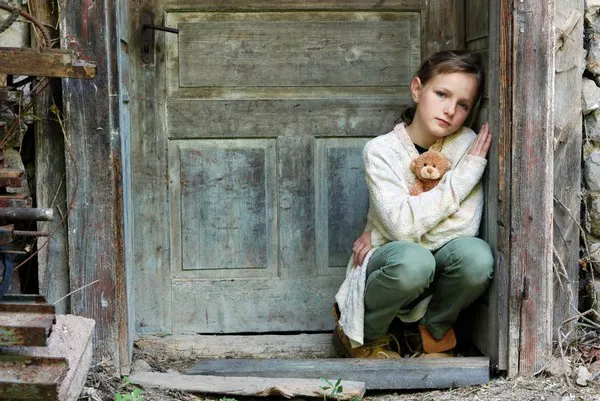Falling in love is a complex psychological phenomenon that intertwines biological, emotional, and social factors. Understanding who is more likely to fall in love involves examining various influences, including personality traits, gender differences, cultural contexts, and life experiences. This article delves into these dimensions, providing a comprehensive perspective on the factors that influence the likelihood of falling in love.
The Psychological Framework of Love
Before exploring who is more likely to fall in love, it’s essential to understand the psychological framework surrounding love. Psychologists often categorize love into different types, such as:
Romantic Love: Characterized by intense emotions, passion, and attraction.
Companionate Love: Involves deep affection and commitment, often found in long-term relationships.
Infatuation: A short-lived, intense attraction that may not be based on a deep emotional connection.
Understanding these categories helps us analyze the factors influencing love and attachment.
Personality Traits and Love
1. Openness to Experience
Individuals high in openness to experience tend to be more adventurous, imaginative, and open-minded. Research suggests that these individuals are more likely to embrace new relationships and experiences, making them more likely to fall in love. Their curiosity about others and willingness to explore emotional depths can facilitate deeper connections.
2. Extraversion
Extraverted individuals are outgoing, social, and energetic. They often seek out social interactions and thrive in group settings. Studies show that extraverts are more likely to initiate romantic relationships, as their sociability allows them to meet potential partners more frequently. Their enthusiasm for life can also enhance the emotional intensity of romantic experiences.
3. Emotional Stability
Individuals with high emotional stability tend to manage stress and emotions effectively. This trait can influence romantic relationships positively, as emotionally stable individuals are often better equipped to handle the ups and downs of love. Their resilience can foster lasting connections and make them more likely to commit to relationships.
4. Agreeableness
Agreeable individuals are compassionate, cooperative, and empathetic. This trait can lead to stronger emotional bonds, as these individuals are more likely to prioritize the needs of their partners. Their tendency to avoid conflict and promote harmony in relationships makes them more likely to engage in loving connections.
5. Neuroticism
Conversely, individuals high in neuroticism may struggle with anxiety, mood swings, and emotional instability. This can hinder their ability to form and maintain romantic relationships. While they may experience intense emotions, their tendency toward insecurity and fear of rejection can make them less likely to fall in love or commit to a relationship.
Gender Differences in Falling in Love
1. Biological Perspectives
From a biological standpoint, gender differences in the likelihood of falling in love can be partially attributed to hormonal influences. For instance, oxytocin, often referred to as the “love hormone,” plays a significant role in bonding and attachment. Research indicates that women generally have higher oxytocin levels, which may enhance their capacity for emotional connection and bonding.
2. Socialization and Gender Norms
Cultural norms also play a crucial role in shaping how men and women experience love. Traditional gender roles often portray women as more nurturing and relationship-oriented, while men are typically socialized to prioritize independence and stoicism. These societal expectations can influence how each gender approaches love and relationships.
3. Attitudes Toward Love
Research shows that women are often more likely to prioritize emotional intimacy and connection in relationships, while men may focus on physical attraction and companionship. This difference in priorities can influence the likelihood of falling in love, with women potentially forming deeper emotional attachments more readily than men.
See Also: How to Bring Back Love in a Marriage?
Cultural Influences on Love
1. Individualistic vs. Collectivistic Cultures
Cultural background significantly affects how individuals perceive and experience love. In individualistic cultures (e.g., the United States), personal fulfillment and romantic love are often prioritized. Individuals from these cultures may be more likely to seek out love as a means of self-actualization.
In contrast, collectivistic cultures (e.g., many Asian countries) may emphasize familial obligations and social harmony over individual desires. In such cultures, love may be viewed through the lens of duty and responsibility, potentially influencing how and when individuals fall in love.
2. Age and Timing
Cultural norms surrounding the appropriate age for marriage and relationships can influence when individuals are likely to fall in love. In some cultures, early marriages are encouraged, while in others, individuals may prioritize education and career before seeking romantic relationships. These cultural expectations shape the timing of romantic experiences and the likelihood of falling in love.
Life Experiences and Love
1. Past Relationships
Previous romantic experiences significantly influence an individual’s approach to love. Those who have had positive experiences may be more open to falling in love again, while individuals with negative experiences (e.g., heartbreak, betrayal) may develop barriers to emotional intimacy. This is often referred to as “attachment history,” which plays a crucial role in shaping future relationships.
2. Attachment Styles
Attachment theory posits that early relationships with caregivers shape our attachment styles, which influence adult romantic relationships. Individuals with secure attachment styles tend to have healthier relationships and are more likely to fall in love, as they feel comfortable with intimacy and vulnerability. In contrast, those with anxious or avoidant attachment styles may struggle with commitment and emotional closeness.
3. Life Circumstances
Factors such as socioeconomic status, education, and life stressors can impact an individual’s likelihood of falling in love. For example, those facing financial hardships may prioritize stability over romantic pursuits, while individuals in supportive environments may feel more secure in seeking love.
The Role of Technology
1. Online Dating
The rise of online dating platforms has transformed how individuals meet potential partners. This shift has made it easier for people to connect based on shared interests, enhancing the likelihood of falling in love. However, the sheer volume of options can also lead to “paradox of choice,” where individuals feel overwhelmed and less satisfied with their choices.
2. Social Media Influence
Social media can shape perceptions of love and relationships. Platforms like Instagram and Facebook often present idealized versions of love, which can lead individuals to develop unrealistic expectations. This can influence how likely they are to fall in love, as they may seek out relationships that match these ideals rather than authentic connections.
The Impact of Mental Health
1. Mental Health Disorders
Mental health can significantly influence an individual’s capacity to fall in love. Conditions such as depression, anxiety, and personality disorders can hinder emotional connections and make it challenging to form lasting relationships. Individuals experiencing mental health issues may struggle with self-esteem and fear of rejection, affecting their willingness to pursue love.
2. Therapeutic Interventions
For those struggling with mental health challenges, therapeutic interventions can facilitate a healthier approach to love. Therapy can help individuals explore past traumas, develop self-awareness, and build healthier relationship patterns, ultimately increasing their likelihood of falling in love.
Conclusion
The likelihood of falling in love is influenced by a myriad of factors, including personality traits, gender differences, cultural contexts, life experiences, and mental health. Understanding these influences can provide insight into why some individuals are more prone to love than others.
Fostering healthy relationships requires awareness of these dynamics, along with a commitment to personal growth and emotional vulnerability. By cultivating a deeper understanding of ourselves and the factors that shape our romantic experiences, we can enhance our capacity to fall in love and build meaningful connections.
Related topics:





















